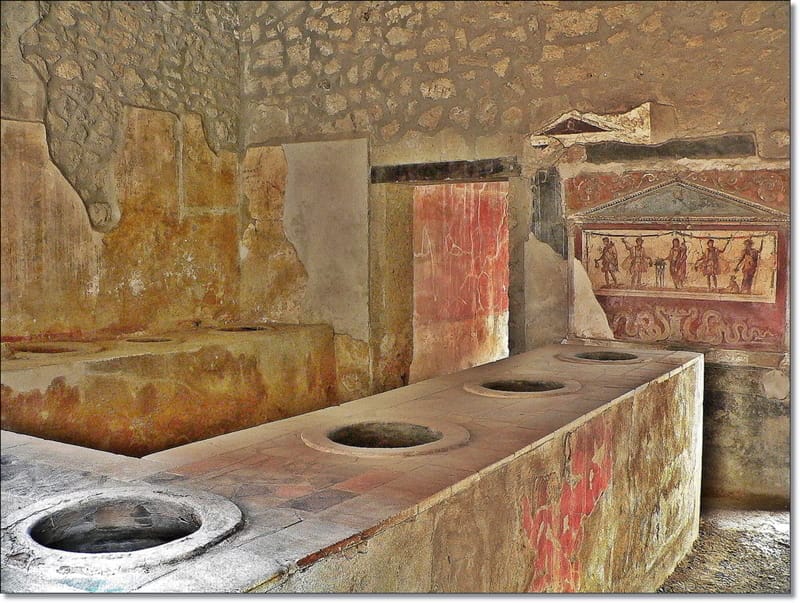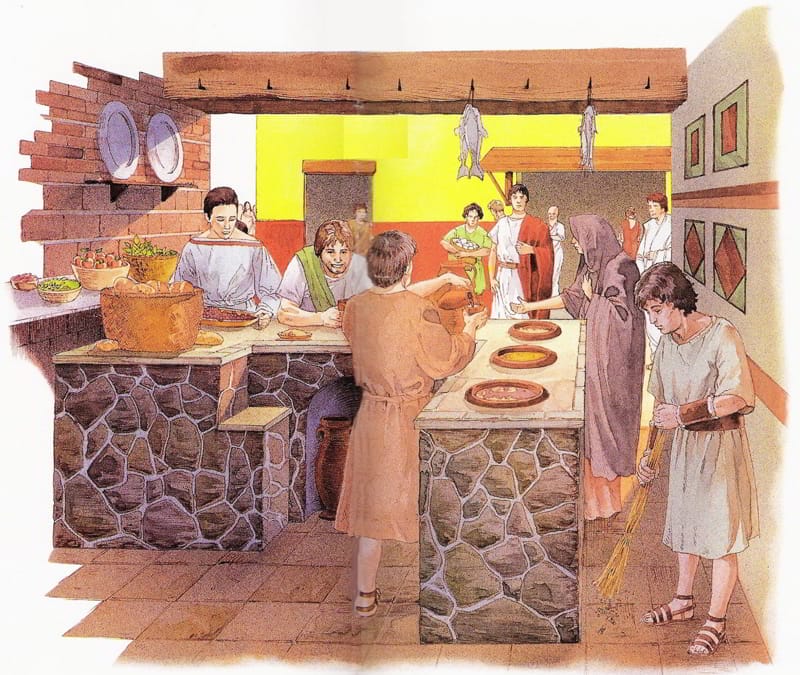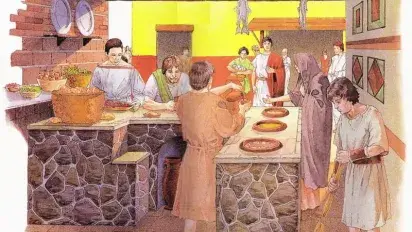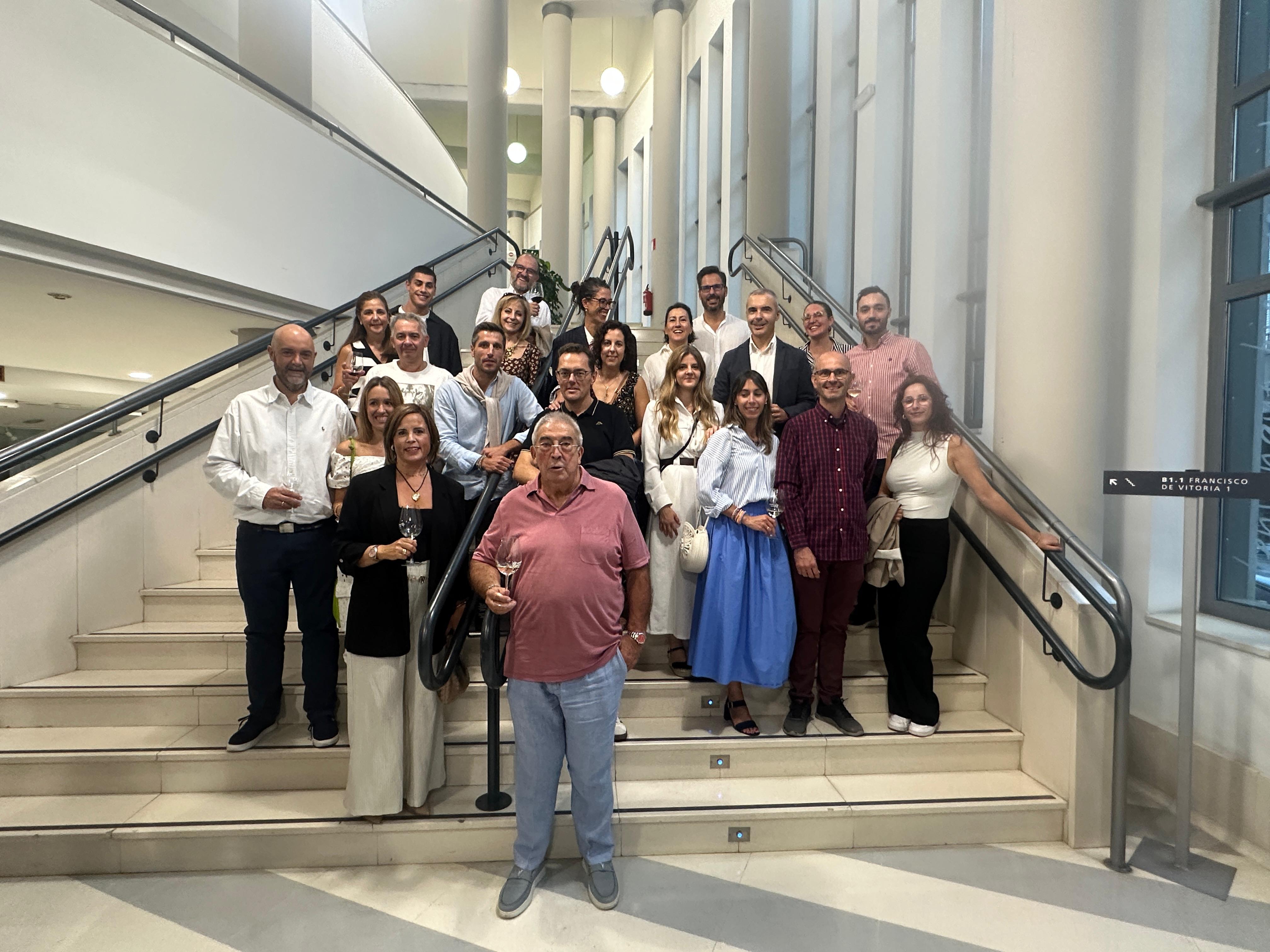Open directly on to a main street, always crowded, with a limited but substantial offer of affordable food and, most importantly, with amphorae containing various types of local wine, always blended with water and spices and served cool in the summer and warm in the winter. This is a general description of a thermopolium, a popular snack bar in the Roman Empire days which could be seen as the predecessor of today's wine and tapas bar.

In his monumental book The Story of Wine, Hugh Johnson says that Pompeii had at one point around 200 wine bars. Among the ruins of the famous city, a wall is painted with the price list of one particular thermopolium. A jar of everyday wine would set you back one as, the smallest coin denomination. In today's words, it would be like one euro or one pound. On the premium end of the scale, a jar of Falerno "the wine favoured by the Empire's upper classes" was worth four as.
Large Roman cities were full of wine bars serving fast food but Pompeii was special not only for the eruption of Mount Vesuvius in the year 79 which buried the city under a thick layer of ashes and lava. Its importance stems from the fact that it was one of the leading wine trading capitals in the Mare Nostrum. Campania's renowned wine was exported from its port which also handled the shipments of amphorae containing the rustic wine that arrived from Hispania. According to Hugh Johnson, the city was undoubtedly the equivalent of today's Bordeaux during Roman times. One of Pompeii's leading négociants in the first century AD, Marco Poncio, had his name marked on the amphorae he traded with. Some of them have been found in distant locations like Baetulo (Badalona, near Barcelona) and guess... Burdigala, today's Bordeaux.
Nowadays it feels as if Pompeii's themopolia, suspended in time, could re-open for business at any moment. As if after the weekend's hustle and bustle, the bar owner would await the usual Monday morning deliveries to have stocks for the week ahead. All that would be needed was to refill the empty amphorae, wipe the marble counter with a cloth and open again for patrons.
 "
"
You may also be interested in:




